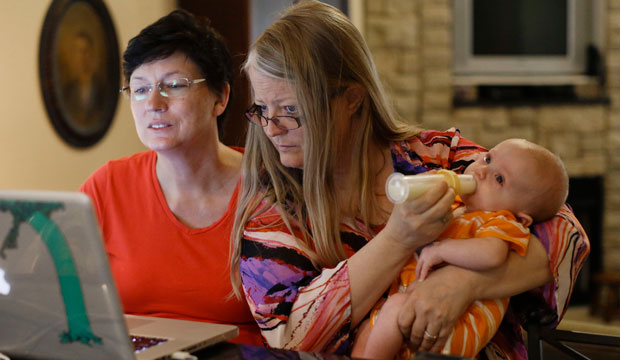The Impact of the Affordable Care Act on LGBT Communities
 Julia Tate, left, sits with her wife, Lisa McMillin, on June 26, 2013, in Nashville, Tennessee.
Julia Tate, left, sits with her wife, Lisa McMillin, on June 26, 2013, in Nashville, Tennessee.
McMillin holds the couple's son, Luke.
Neil, an African American gay man living in the South, lost his job—and his health coverage—in 2010. That same year, he was diagnosed with HIV. He struggled for years without the medication he needs, which costs $3,000 a month and is not covered by public programs available in his home state.
Under the Affordable Care Act, or ACA, however, financial assistance is available to help make coverage more affordable, and plans are not allowed to discriminate against people living with HIV or people who are lesbian, gay, bisexual, or transgender, or LGBT. When the health insurance marketplaces that were established under the law opened in October 2013, Neil found a plan he can afford that covers the medications he needs. “The Affordable Care Act,” he says, “is something that is helping me, so that I can live.”
Neil is not alone. The Affordable Care Act makes numerous important changes to the U.S. health system, such as offering millions of people—including millions of LGBT people and their families—an unprecedented opportunity to access affordable, high-quality health insurance coverage, often for the first time in their lives.

The research survey was updated and refielded in summer 2014 to assess the law’s success in reaching LGBT people who most need help to get coverage. The findings were astounding: By 2014, uninsurance among LGBT people with incomes less than 400 percent of the FPL had dropped from the 2013 rate of one in three—34 percent—to one in four—26 percent—uninsured. In short, over the single year that encompassed the first open enrollment period under the Affordable Care Act, the rate of uninsurance among LGBT people fell 24 percent.
https://www.americanprogress.org/issues/lgbt/report/2014/11/17/101575/moving-the-needle/

